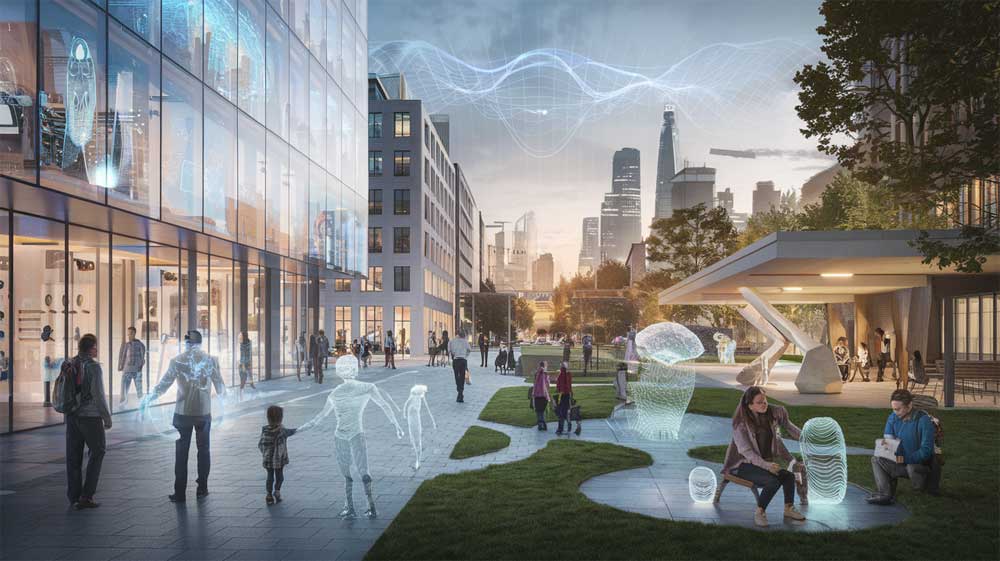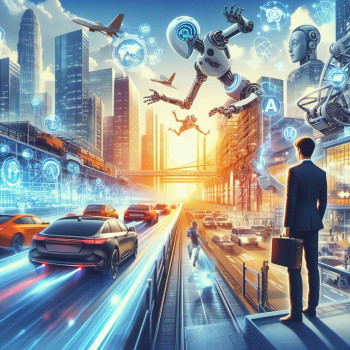We stand at the threshold of a profound evolution in human and machine interaction—what might be the most significant turning point since the dawn of the digital age. This is the Era of Experience, where the convergence of Artificial Intelligence and Phygital Environments transcends traditional transactions, ushering in a future built not on possession or data alone, but on emotion, immersion, and intelligent adaptation.
From the Era of Human Data to Experiential Intelligence
AI pioneers David Silver and Richard Sutton recently described this shift as the move from the “Era of Human Data”—where models learn from vast archives of human-created text, images, and behavior—to the “Era of Experience”, where AI systems evolve through direct interaction with the world.
Traditional Large Language Models (LLMs), though impressive, are reaching their limits when it comes to deep reasoning, creativity in science, and superhuman performance. Human-generated datasets, while rich, are inherently static—they encode what we know, not what we’ve yet to imagine.
Silver and Sutton point to AlphaProof, a groundbreaking system trained on 100,000 formal human-written mathematical proofs, which then went on to generate over 100 million new proofs through reinforcement learning—unlocking mathematical pathways and logic chains never seen before.
This leap from imitation to exploration, from learning passively to experiencing actively, is exactly what defines the next frontier of AI—and the very heart of the Era of Experience.
AI as the Architect of Immersive, Emotional Value
AI is no longer just a tool that enhances productivity; it is the co-creator of experiences. As AI systems move from passive consumption of human knowledge to active experiential learning, their role becomes not only more powerful, but more creative, adaptive, and unpredictable.
Why Experiential AI Changes Everything:
- From Data to Discovery:
Experiential AI systems don't just analyze—they discover. In industries like healthcare, this could mean generating entirely new treatment pathways. In education, it could produce custom-tailored learning journeys that evolve with each student's style, pace, and emotional state.
- Emotionally Intelligent Experiences:
AI that learns experientially can better understand human behavior in real-time. This allows it to co-create interactive, emotionally resonant phygital environments—from AI-powered wine tastings to interactive travel guides that evolve as you move.
- Continuous Learning & Real-Time Adaptation:
Traditional AI is trained, deployed, and often remains static. Experiential AI adapts continuously, much like a mentor who grows with you. This opens the door to lifelong AI companions in fields like personal finance, mental health, or creative coaching.
Phygital + Experiential AI = The Intelligent Ecosystem
As the physical and digital blend into phygital ecosystems, the true game-changer is how AI interacts with users in space and time. AI no longer sits in a backend server—it lives in our environments, learning with us, reacting to us, and evolving alongside us.
Imagine:
- A Nexth XHub where lighting, scent, music, and offerings adapt not to demographics, but to real-time collective moods and micro-interactions, guided by AI.
- An iTV platform that reshapes content dynamically based on viewer engagement, curiosity, and emotional response.
- AI sommeliers, travel concierges, and fashion advisors that don’t just recommend—but co-experience with the user and learn contextually.
The Paradox of Power: Risks of the Experiential Age
This power, however, comes with deep philosophical and ethical questions.
- Transparency: As AI becomes more experiential and autonomous, it becomes harder to audit. Why did it make that recommendation? What bias did it learn? Unlike static models, experiential systems evolve—sometimes beyond our visibility.
- Displacement of Judgment: If AI systems outperform human experts in niche domains—medicine, law, strategy—what becomes of the human role in high-stakes decisions? Will we delegate judgment or deepen our collaboration?
- Alignment and Control: These systems don’t just execute—they choose. Ensuring that their learning and adaptation stay aligned with human ethics, culture, and intentions is one of the great challenges of the era.
Designing the Future: Co-Evolving With Intelligence
To fully embrace the Era of Experience, we must rethink how we design AI, business, and society:
AI agents must be co-designed with ethics and emotional intelligence at the core.
Phygital spaces must become responsive, not just interactive—where AI feels not like a backend utility but a presence.
Brands must evolve from selling to co-creating living narratives—adaptive, emotionally rich, and rooted in real-time intelligence.
The Experience is the Innovation
In this new world, value is no longer about possession or even personalization. It is about shared experience, intelligent evolution, and emotional connection.
The most powerful innovations will not be the smartest machines or flashiest tech. They will be the systems that feel alive—growing, learning, and resonating with us.
This is the dawn of Experiential Intelligence.
And the invitation is clear: Imagine. Feel. Learn. Co-create.






